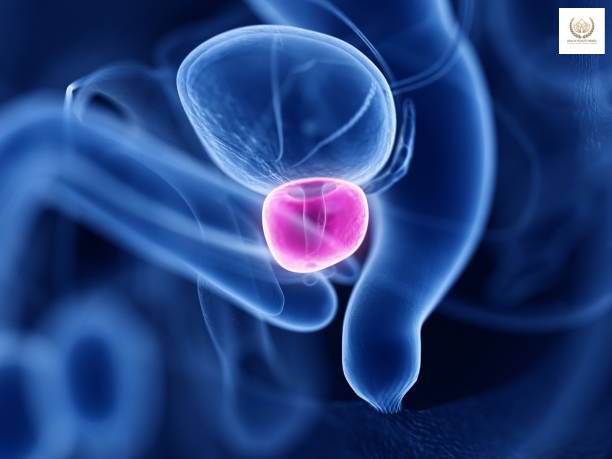Many men in their late 50s experience health issues related to the prostate. According to Harvard Medical School, 50% of the men in the world experience prostate issues by the age of 60.
You could be living a busy life filled with work, family, and the occasional gym session. And suddenly, one day you start experiencing many frequent trips to the bathroom to urinate.
These issues may seem to be minor at first, but they can be unhealthy signs for men’s prostate health. Ignoring the symptoms for long can even lead to prostate cancer.
Believe it or not, many of our health-related issues are due to the poor dietary habits that we form through adulthood.
Understanding these ten worst foods for prostate health can help you make essential dietary changes and improve your prostate health.

- Also See – Detail Diagram of Prostate Gland
Disclaimer: The nutritional values provided in this article are for informational purposes only and are not intended to be used as a definitive source. Please consult with a registered dietitian or nutritionist for precise nutritional information tailored to your specific needs.
Ten Worst Foods for Prostate Health to Avoid
1. Alcohol
Alcohol is the leading cause of bad prostate health. Men who consume extreme alcohol face challenges with inflammation and hormonal imbalance, which potentially lead to prostate-related problems.
Best Alternatives
Non-Alcoholic Beverages
Mocktails without alcohol
Water and Herbal tea for proper hydration.
2. High Sodium in Foods
High Sodium intake can lead to high blood pressure, which is directly linked to increased risk of prostate problems in men. Foods such as processed and fast foods are high in sodium and use them as preservatives in packed foods.
Best Alternatives
Use natural Herbs & Spices instead of kitchen salt.
Preparing home-cooked food with minimum salt.
Choosing low-sodium products while shopping for groceries.
3. Refined Grains (Simple Carbohydrates)
Refined grains like white bread, pasta, and white rice are sources of simple carbohydrates. Consuming refined grains spikes blood sugar levels, causing diabetes and also contributing to prostate issues and obesity.
Best Alternatives
Whole grains (complex carbohydrates) foods such as brown rice, quinoa, and whole wheat bread. Also opt for legumes such as beans, lentils, and chickpeas. Farro, barley, and bulgur are also some healthy options.
4. High-Fat Foods (Trans Fat)
Fried foods have a large content of saturated and trans fats. And if foods like fast foods and fried foods are eaten often, it leads to obesity and chronic inflammation, which are risk factors for prostate cancer.
Best Alternatives
Include healthy fat foods such as avocado, nuts & seeds.
Use olive oil or coconut oil as a cooking oil or for dressing salads.
Eat lean proteins such as chicken, fish, and legumes.
5. Extreme Caffeine Consumption
Excessive caffeine intake can irritate the bladder as well as your prostate, which initiates the symptoms of prostate issues like Benign Prostatic Hyperplasia (BPH).
Best Alternatives
Trying Herbal tea as a caffeine alternative can be a great choice for starters. Decaffeinated coffee and water are the best replacements for coffee.
6. Canned Foods
Canned foods contain Bisphenol A (BPA). In various studies it has been found that BPA can cause hormone imbalance in men, along with disruption in prostate functions. It can also cause prostate cancer when consumed for a longer period.
Best Alternatives
Choosing fresh fruits, vegetables, and lean protein sources is considered a healthy alternative.
Reduce the usage of frozen foods.
Always prioritize foods that are glass packed, such as in glass jars, which are BPA free. Check product label for BPA content.
7. Foods cooked in Refined vegetable oils
Many refined vegetable oils made from canola, soybeans, and corn are often high in omega-6 fatty acids. It contributes to inflammation if consumed in excess amounts. And chronic inflammation is often linked with many health issues, with prostate cancer as one of them.
Best Alternatives
The best would be to choose cooking oils that are rich in monounsaturated fats naturally. Olive oil is considered the best natural oil, which can be used for cooking, frying, or dressing. Other good alternatives are coconut oil, avocado oil, and flaxseed oil, which are also rich in omega-3 fatty acids.
8. Red Meat
Red meat, when cooked at very high temperatures, produces a carcinogenic compound called Heterocyclic amines (HCAs) and Polycyclic aromatic hydrocarbons (PAHs). Eating red meat daily with the wrong cooking method develops the risk of bad prostate health.
Best Alternatives
Switch for white meats such as chicken or turkey. Seafoods such as fish or shellfish are also a healthy option. For vegetarian legumes, quinoa, lentils, and chickpeas are considered the best options.
9. Sugary Beverages and Packed Foods
It is not new information that foods with high sugar content are a leading cause of obesity and diabetes as well. Overconsuming sugar makes the body resistant to insulin. It is also associated with rising risk of prostate cancer at older age in men.
Best Alternatives
While it is not necessary to avoid sugar completely. But for health reasons it is advised to reduce the consumption of sugar as low as possible. Opt for alternatives such as fresh fruits like apples and berries. And replace sugary drinks (sweet juice, sodas) with herbal tea and chilled water.
10. Dairy Products
In older men, consuming too many dairy products like milk, cheese, and butter is not a healthy habit. Dairy products spike insulin, leading to Type 2 Diabetes. These imbalances of insulin hormone are linked with prostate-related health issues.
Best Alternatives
Non-dairy products such as nuts & seeds, almond milk, or oat milk are the best alternatives.
What is Prostate?
The prostate is a walnut-sized gland located below the bladder in men’s bodies. It produces a seminal fluid to nourish and safely transport sperm.
In general, men’s prostate health refers to the proper functioning of this gland.

Why is Men’s Prostate Health Important?
Maintaining prostate health is vital for men’s health.
The prostate is prone to various health problems like prostatitis, benign prostatic hyperplasia (BPH), and prostate cancer, especially in men over 50.
Men’s prostate health issues are more likely to occur with age, but it’s never too early to take preventive measures.
The foods you eat daily significantly influence men’s prostate health. Consuming these foods can either support or harm the prostate, which makes dietary changes essential for maintaining or improving men’s prostate health.
Essential Dietary Changes For Prostate Health
1. Drink plenty of water throughout the day to stay hydrated.
2. Choose lean protein sources such as fish, poultry, beans, and legumes.
3. Substitute refined grains with whole grains like brown rice and quinoa.
4. Limit consumption of processed foods, especially those high in trans fats and added sugars.
5. Consume vegetables such as broccoli and Brussels sprouts for their cancer-fighting properties.
6. Eat more local produce, green vegetables, and fruits, especially those rich in antioxidants and vitamins.

Lifestyle Changes For Men’s Prostate Health
1. Regular Health Check-ups: Schedule regular check-ups with a healthcare provider to monitor prostate health and discuss any concerns or symptoms promptly.
2. Maintain a Healthy Weight: Obesity is linked to an increased risk of prostate issues. Aim to maintain a healthy weight through a combination of diet and exercise.
3. Healthy Diet: Consume a balanced diet rich in fruits, vegetables, whole grains, lean proteins, and healthy fats. Limit intake of processed foods, red meat, and high-fat dairy products.
4. Regular Exercise: Engage in regular physical activity such as brisk walking, jogging, or swimming, which can help maintain overall health and support prostate function.
5. Stay Hydrated: Drink plenty of water throughout the day to promote urinary tract health and flush out toxins from the body.
Your Final Learnings
Now that you are aware about the ten worst foods for prostate health, you can make informed choices about your diet and lifestyle.
This awareness is the first step toward promoting a healthier prostate and improving your overall quality of life.
Remember that a balanced diet, regular exercise, and regular check-ups with your doctor are key components of a comprehensive approach to men’s health.
A small changes in your diet can lead to big improvements in your long-term health. Consult with your doctor or a registered dietitian for personalized advice tailored to your specific needs.
Leave a Reply